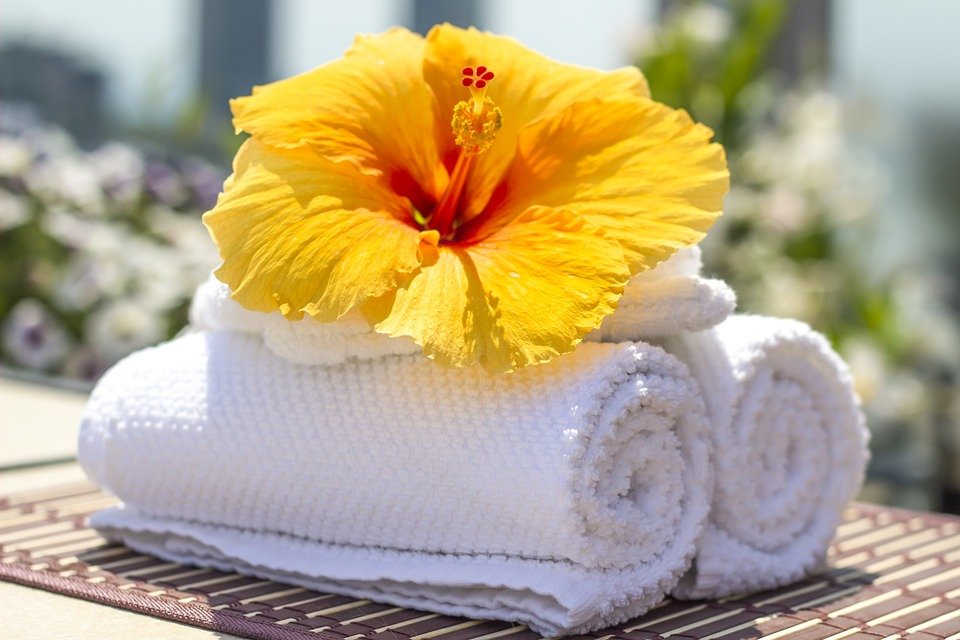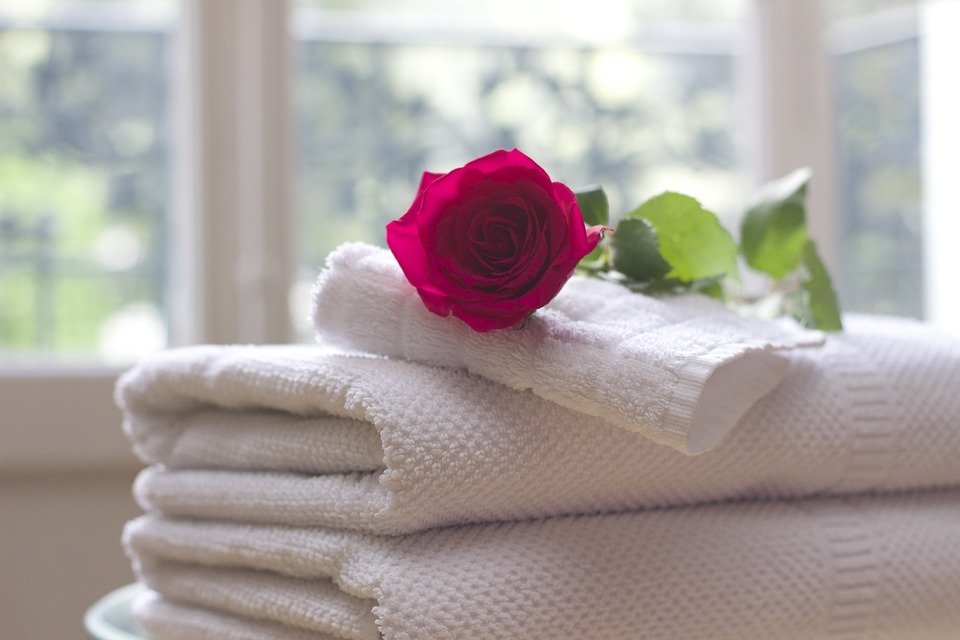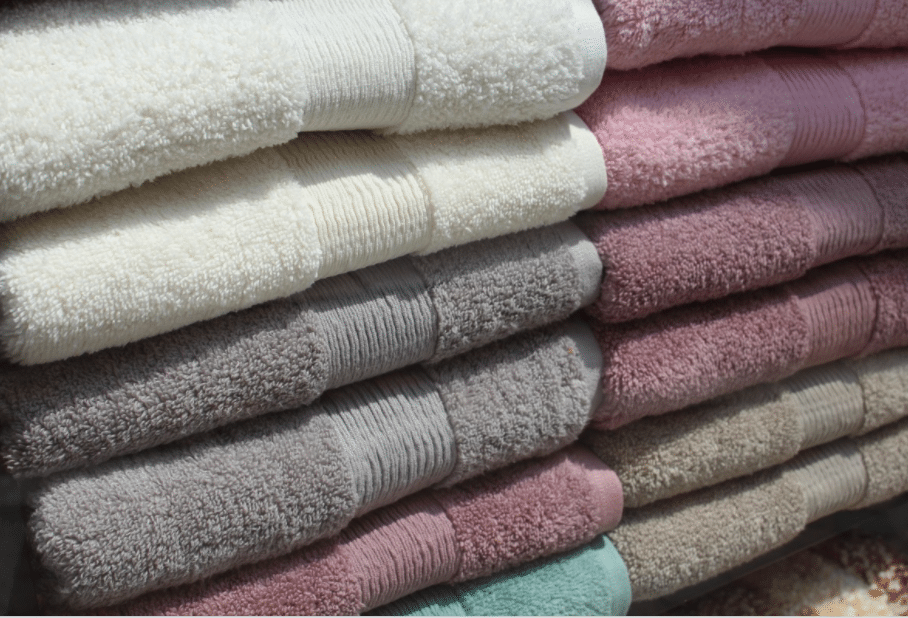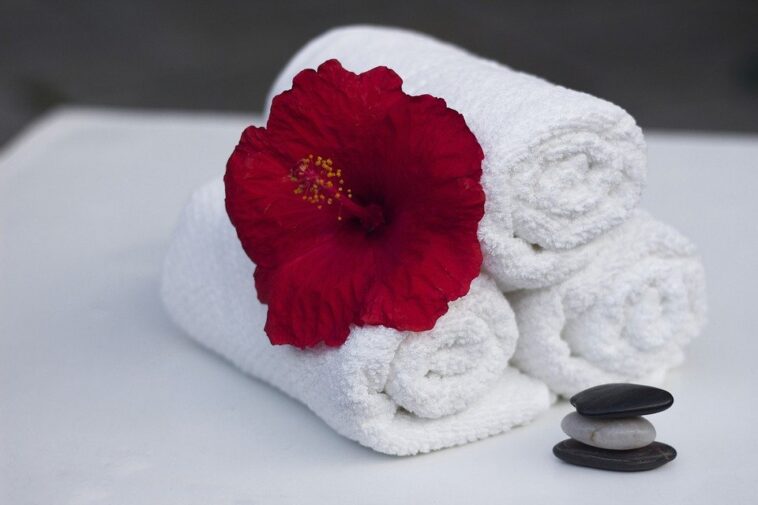Our towels accompany us daily and as such, they deserve to be treated with the greatest care. Indeed, there is nothing worse than a bath towel which absorbs nothing, which is very rough and which lacks softness to wrap yourself in. Furthermore, we expect them to be robust… it must be said that they are not cheap so they absolutely must last a very long time! Finally, we want them to remain as soft as they are absorbent. Discover here our 7 best bathroom linen care tips to ensure this. (Your washcloths and bathrobes can also benefit from it!)
1) Tips for new bath towels
We advise you to favor cotton or bamboo towels and, if possible, quality ones so that they do not decompose quickly. As for the size, it is of course up to your preferences, but large sizes often offer more comfort than small towels. Moreover, remember to clean them before first use for three reasons. First, a new bath towel won’t absorb anything. A highlight for a linen acclaimed for its absorption capacity! Also, like clothing, towels may have suffered damage. chemical treatments which leave traces and we do not know who touched them or in what conditions they were transported. The fact that your large towel is new does not guarantee its cleanliness! Mandatory use in the washing machine for a more hygienic first use…
2) The right actions and tips for machine washing towels (and the correct use of the dryer)

First of all, prefer to wash separately, because zippers or buttons are sources of snags. Wash at temperatures that are not too high and avoid fabric softener which is harmful to absorbency of your towels. We give you alternatives below, don’t worry! On the other hand, we do not deprive ourselves of put in the dryer if you have one, because it gives volume, softness and suppleness to the fabric. This rapid drying allows you to obtain very soft towels.
3) Take out your bottle of white vinegar
Earlier, we explained to you that the use of fabric softener was not recommended. Fortunately, you can easily replace it with two tablespoons of white vinegar in the machine’s compartment dedicated to fabric softener. Very effective, it is a much more ecological and economical alternative. Note that its smell does not remain on the laundry so don’t deprive yourself of it! We can’t do better to restore the absorbency of towels!
4) What if you used the lemons in your fridge for your napkins?

It is indeed the limescale that gives cotton towels a rough and hard texture and using the juice of a lemon helps counteract these effects and keep towels really soft without chemical softener (in fact, pour the juice in the compartment normally intended for it).
5) We bring out our trusty baking soda
It can be found in the same aisle as salt at a very low price. In addition to fighting the effects of limescale, baking soda deodorizes towels and helps revive their colors. Just put 1-2 tablespoons of it in the washing machine tub and let it work its magic on the bath sheets. Perfect for a beach towel or terry towels!
6) Aloe vera

It can be found in pharmacies, organic stores and even in certain supermarkets. We are often aware of its soothing and moisturizing effects on the skin, but we are less aware that our towels are as big fans of it as we are! You can prepare a basin in which you put a spoonful of gel per liter of water. Once it’s ready, you can soak your towels in it for two hours.
7) And finally, you can also use glycerin to make your fabric softener!
Make a mixture with five tablespoons of glycerin (to buy in a pharmacy) with thirty drops of an essential oil of your choice (preferably choose it that is non-irritating to the skin). Top off your homemade softener with a little mineral water or distilled water until you get the perfect texture. This is ideal for softening old towels that have become rough.
Related articles:


